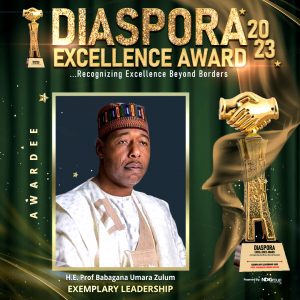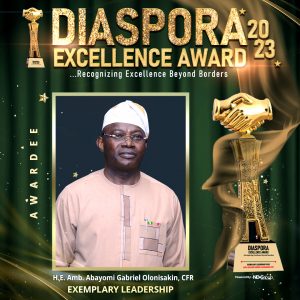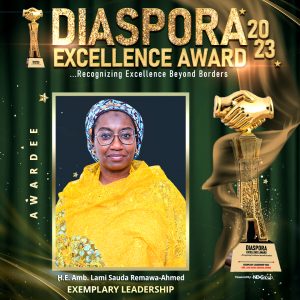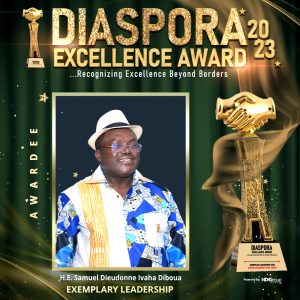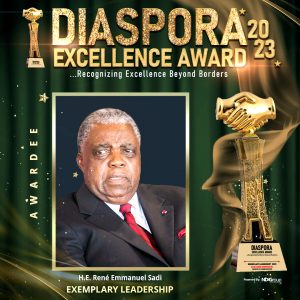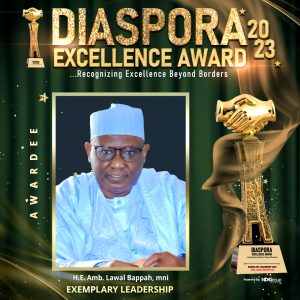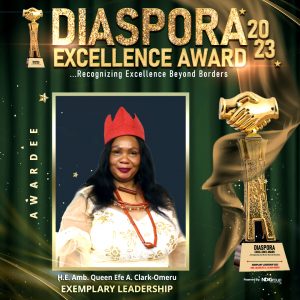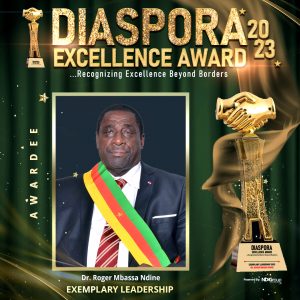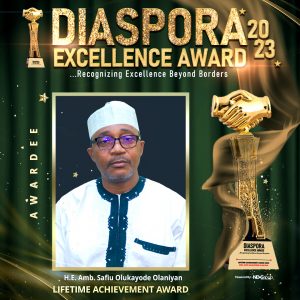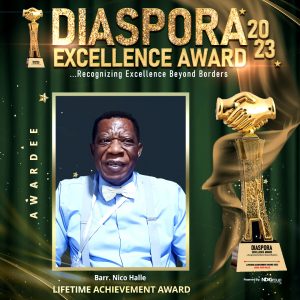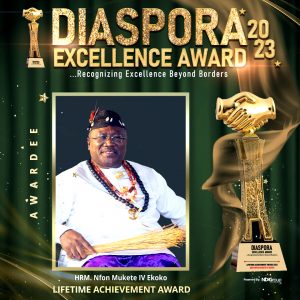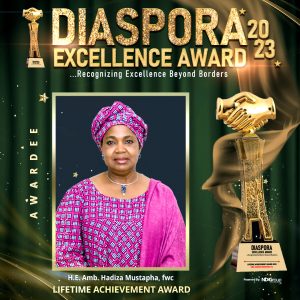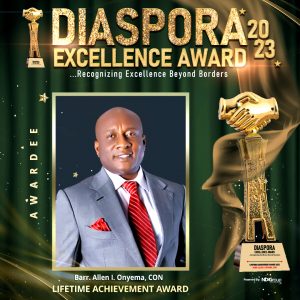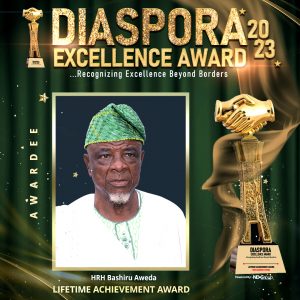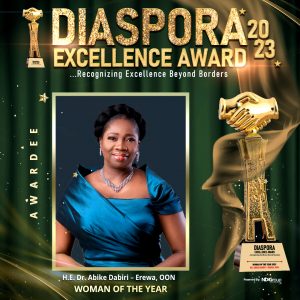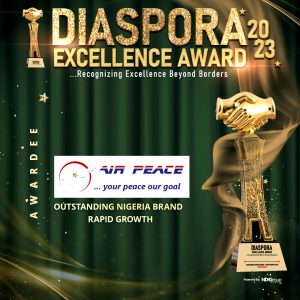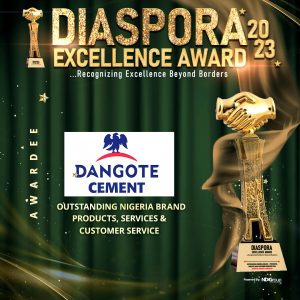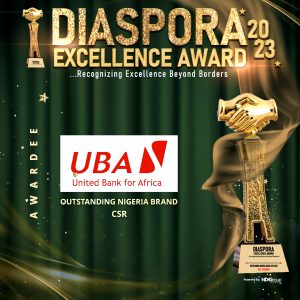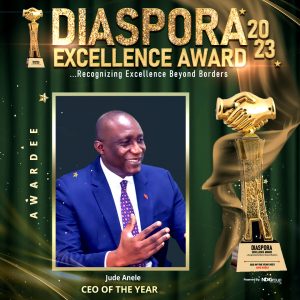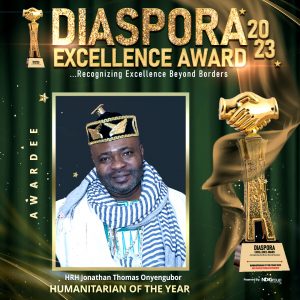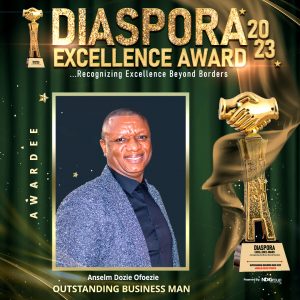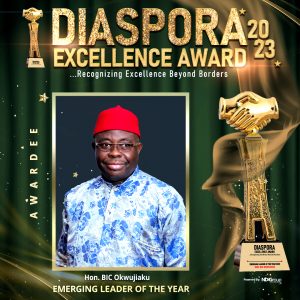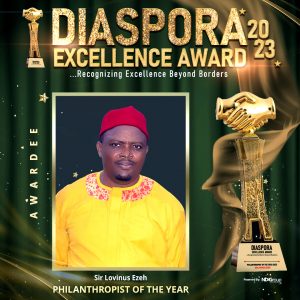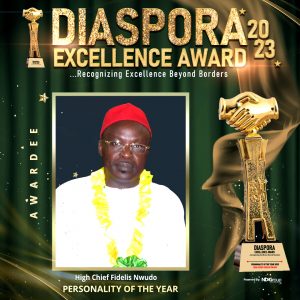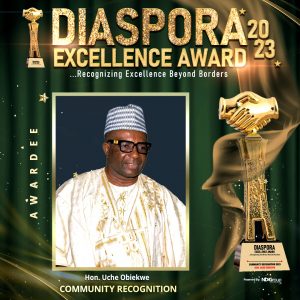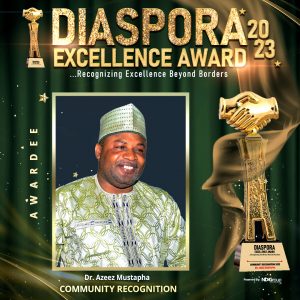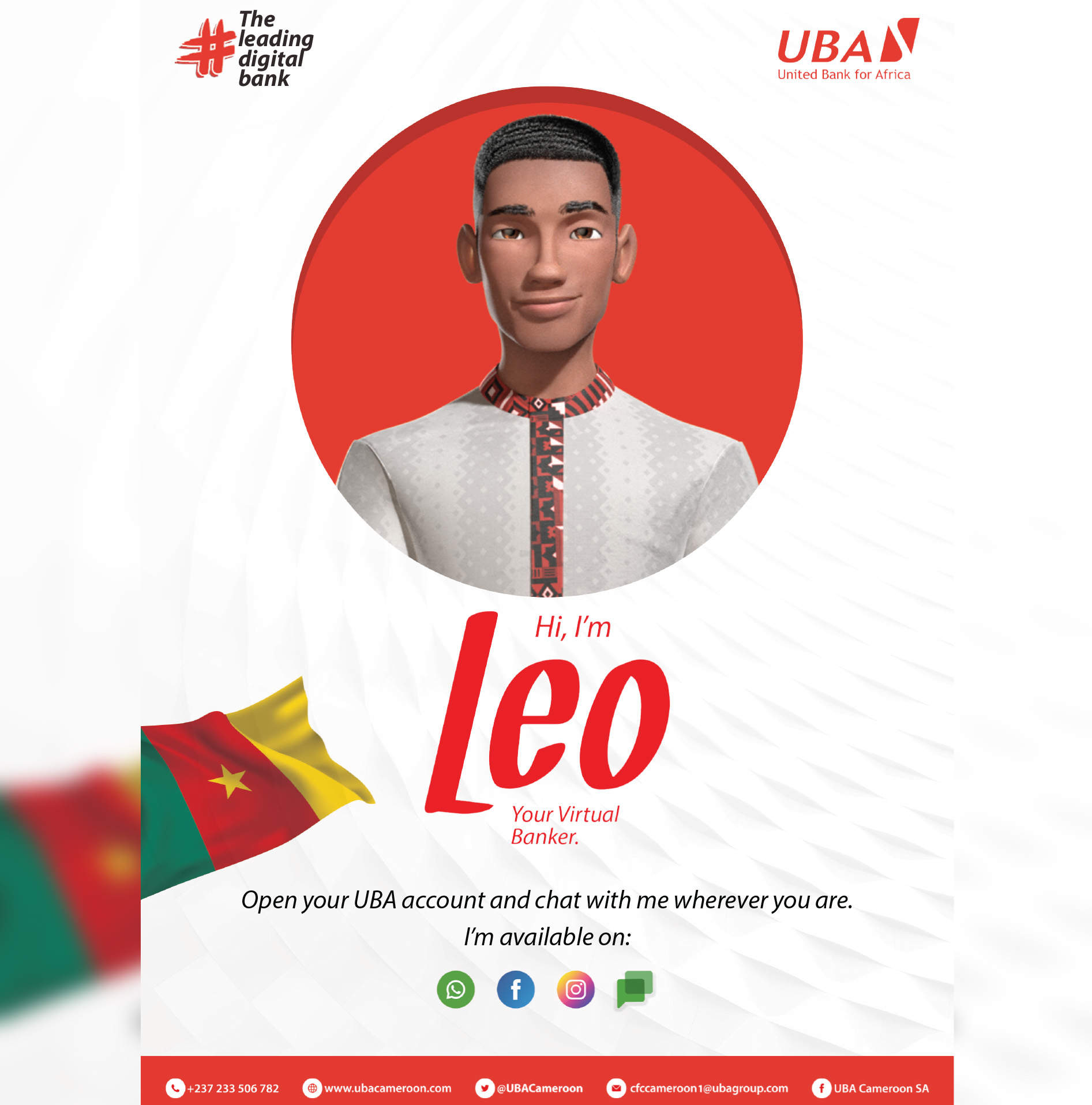Magazine
ROLAND KWEMAIN: COVID-19, a blessing to digital world
Published
2 ans agoon


Roland Kwemain is Chief Executive Officer of an African leading company which is adding value and empowering Africa’s modern-day actors in development initiatives. In this interview, which focuses dominantly on African modernity and prosperity, Kwemain delves deeply into the qualities of impactful leadership. He equally insists that the outbreak of COVID-19 and the urgent need to go digital is more of an opportunity rather than a setback to the world. He shares his vision with ND team.
What does your job actually entail?
I want to first of all share my vision on African modernity and prosperity. My job is to empower human capital. Africa is a continent of paradox; the richest in terms of natural resources but unfortunately the poorest, in terms of human development and even development as a whole.
This paradox can be explained by the deficit in leadership and if I want to be very hard, I will say poor leadership. We came out with our company to empower and make sure that we have a new generation of leaders and managers who are going to transform this continent because the continent is very rich.
The potentials are huge and what can make the continent to go far is the human capital; not the technology, the minerals, not the oil and all of that. If that were the case, then we all agree that Africa would have been very far. So, we have missed something very crucial which is the absence of leaders. My job is to empower the new generation of leaders so that we take Africa to the next level of its development. We also need to define what we mean by development for Africa. Development in the United States of America, in Japan, in the United Kingdom, in France is not automatically what Africa needs. We need firstly as a continent and as a people, to first define what development means for us. What development means for Africa and what it means for Nigeria, for Cameroon, for Cote d’ivoire. From there, the educational system will be conceived to create managers, leaders, entrepreneurs who are going to support that vision. That is one of my roles as a leadership coach.


Why did you choose to coach Africans to succeed instead of being a policeman like your father?
I decided not to be a policeman for reasons we know. As an entrepreneur, my mother was frying puffpuff (fritter), selling beans and I saw that she could educate 10 kids. My father as a policeman or a police instructor had just a salary because throughout his career, he was a police teacher, training elements of the Police Force. We all know that teachers don’t have money and he was such an honest person that he refused at the end of his career to stand by the road like others do to collect little bribes. He refused to do that and taught all his life. My mother with the little that she had did much and that’s why I decided to become an entrepreneur but more of a social entrepreneur. I told myself that I wanted to create an impact and leave a name. One of the best ways to do that was to become someone like my father who was a teacher and also like my mother who was an entrepreneur. Blending the two, I could go far; so, I am a blend of the two. I am a teacher in the sense that a leadership coach is a teacher. I am an entrepreneur in the sense that I transform and create wealth.
Now, if you were to create a five-point plan for development in Africa, what would that be?
We will first define what development is for each country or region. This is because we have been using foreign concepts and this copy and paste approach will not work. It must first be based on the culture and on what people want. So, firstly, it will be defined through a participatory approach to what development is for Cameroon, for Nigeria, for Ivory Coast and so on. Number two, we must rethink our educational system. When the colonial masters were here, they were the people who created our educational system. It was meant to serve the colonial masters. As for me, I don’t want any polemic on that. If I were in their place, I would do the same. But it is a pity to have maintained this system 65 or 70 years after independence. We still do the same thing; whereas, the world and the environment has changed. By now, we should know what we want; so, I think number two should be the educational system from primary school to the university. Number three should be to give more power and more responsibility to women. I think President Paul Kagame has done it so well in Rwanda. I will encourage all African countries to emulate the same to empower women. Number four is to empower youths. They should be given the right environment and the right framework because innovation and digitalisation are more youths-inclined and youth is a promise and not a problem. We will need to invest massively in the digital economy. Fifthly, like in Nigeria, we should invest massively in the culture. Like in fashion, we should consume what we produce and produce what we consume. For me, those would be the five priorities.
You just mentioned Nigeria. The country has a huge success story as far as entertainment is concerned. They have sold Africa to the world. How can other countries like Cameroon benefit from the milestone so far achieved by Nigeria?
You bring something to my mind. When I met the Dalai Lama in Osaka Japan, we had a conversation and with him, being a spiritual leader that the world admires and respects, I enquired to get his understanding about this paradox in Africa. Leaders like that will never give you answers but will give you possibilities to rethink yourself. He told me that ‘you have the answer, my son’. I quickly understood that Africans do not believe in themselves. We don’t know our history and when we don’t know our history, then we don’t master the present and can’t project into the future. This is to say we are not united and we focus more on what divides us rather than on what unites us. I am a Cameroonian but I am so proud of Nigeria and I visit that country, at least three times a year. My first visit to Nigeria was in 2005. When I got there, I decided to visit a Nightclub and they were playing Cameroonian music. At that time, Cameroon had the big names and makossa music was most popular. The tides have moved on and Nigeria has exploited the sector and grown to great dimensions. It should not be a threat to Cameroon but rather a blessing. It should encourage Cameroon to invest much more in the sector and in doing, so we should collaborate with them. It will be amazing! I think we are the same people. Let me give this example, I once travelled abroad with some Nigerians, Ivorians and Malians for international conferences. If we had asked the whites to look at us and tell us our nationalities, they would not have been able to spot any difference. But amongst ourselves, we spend time trying to identify ourselves through our countries. I am Cameroonian, I am Nigerian, I am Ivorian and so on. We focus more on things that divide us rather than on things that unite us. I have visited 36 African countries and for most of the time, it is Nigerian music and movies. We should take it as a blessing for the continent. Nigeria should also behave like a big brother in the domain and take the junior ones along. You might be a big brother in a family of 10 but sometimes you have to be humble and listen to all your brothers. If you don’t do this, you may lose your legitimacy as a big brother.


Now talking about benchmarking which is a leadership tool, who are some of those Cameroonian leaders and entrepreneurs that young people can emulate?
You have Paul Fokam Kammogne, the guy who owns Afriland First Bank. He is an amazing intellectual; he writes a lot. He started like a Credit Union and today, he is a fort in the banking Sector. Today, he is in finance and in media. When you take Vox Africa, it is him; he is in industry and in education because he runs a university. He has written about five books amongst which I have read three. I think he is a great guy. You also have Andre Siaka who used to be the General Manager of Brasseries du Cameroun.
This guy, within a period of 25 years, transformed this company from an outfit that was almost collapsing to a thriving company. In the 90’s with the rejection of the French presence and the ensuing difficulties, he succeeded, despite all. He prefaced my second book. Again, you have Célestin Tambawa, who is in the agro industry in terms of Pasta and is also interested in the production of medicine. I think, we have a good number like that in Cameroon. You have some of the younger generation who are much more interested in Information Technology like Olivier Madiba who has broken grounds in games, specifically African Games.
There is Alaine Nteff who became very wealthy, thanks to Nigeria. He developed a software to prevent child mortality. You have Leslie Azong Warra in IT as well on mobile solutions. From the old to the young generation, they are not less than 50 of them and I could continue listing them.
There is Rebecca Enonchong, an amazing angel who is an investor and very dynamic in youth leadership. Those are just some of them. I took from those in the 70s through those in the middle age around the 50s and the younger generation. I think, we have a strong ecosystem that is very dynamic. The only obstruction that we have is the level of corruption which is very damaging to the economy. Another major problem is the absence of a friendly relationship between the government and the corporate sector. There is even a conflict and if we could sort it out, I think the economy will go really far.
With the digitalisation of professions today, for the work base, how is that an advantage or a disadvantage to Cameroon?
Many see it as disadvantageous but as a leadership coach, I will keep saying there is an opportunity. What we called the abnormal is now the new normal. COVID-19 came and really disrupted everything; so we need to reinvent ourselves. If we focus only on the problems or the challenges, then we are in trouble. The world will never be the same again. If you take a big company like the Groupe SABC, which is one of my clients, you will notice that they are into massive digitalization, but they started the process three years ago and never imagined that COVID would come. Another client, BGFI Bank, will tell you that thanks to the anticipation in digitalization, they could come out from these crises even stronger. Digitalisation is an opportunity for Africa. One of the advantages is that the process is so fast and there is transparency; and it can solve the problem of corruption. The system of payment at toll gates in my country is still manual. Rwanda has succeeded to digitalise 112 government activities from visa to passport amongst many others and this has killed corruption. Secondly, we go faster as what could have been done in a week is done in minutes. Digitalisation is an opportunity and there should be massive investment in the infrastructure such as the optical fibre and the connections. Every young man has an Android phone, but the issue now is to see how the internet connectivity can be better and cheaper.
What do you suggest for entrepreneurs to do to cope with the restrictions imposed by COVID-19?
We were hit by almost 75% because of the Social Distancing; we couldn’t do training again. I used to have an event called Impact Talks at Cartel Hall in Douala and I usually had about 350 people in attendance. The government permited only gatherings of at most 50 people. Imagine the drop from 350 to 50 people! Many seminars were cancelled since my clients are multinational and they strictly adhere to anti-COVID19 measures which prevent face-to-face encounters. We were forced to go digital. I have told my staff and collaborators that it is the only way forward. We might not like it but we have got to get used to it. Going digital will make our activities more impacting. I sometimes have webinars which connects me with participants in over 18 countries. Formerly, I would have had to visit 18 countries. When one door is closed, there are always other doors open. If we continue to cry that we can’t do the Impact Talks again with 350 people, nothing will change. We simply need to look for a way forward.
How do you follow Christian principles and still do successful business?
I was born in Yaoundé into a Christian family, although I grew in Mutengene and Buea. I am blessed to be bi-cultural, though I studied completely in French. I am a committed Catholic Christian. I was even blessed once to be the National President of the Catholic Men Association. Doing business is not evil.
If you look at my second book, you will notice that most of the write ups are influenced by the leadership spirit of Jesus Christ. First of all, we are created in the image of our creator, God. If you look at the way God created the world, you will agree that he is a hard-working God. God is a visionary and impacts the way everything is put in place. I think, we should work hard but we should have values and principles.
You can succeed without compromising and that has been my principle. Faith in God, fear in God and generosity are some of my strongest principles. We call it in the corporate world, Corporate Social Responsibility; giving back to the community.
Other principles that I have are honesty and integrity. I prefer someone who is not very competent but who is honest. We can always work on competence but not on honesty. If you are dishonest and you have an issue of values, it becomes so complicated. The other element in business that is also compatible with faith is about planning, progressing, making profits and, most importantly, having pleasure.
I start my day in prayer and end it in prayer; I sleep for four hours a day. If you focus on prayer but you don’t work hard, then you are working on one leg. You have to walk on two legs. You have to pray and work hard simultaneously.
If you only concentrate on working hard without God, then you will not relate properly with people since you will practically become a machine. Serving people is a very important constituent of leadership. A leader is anyone who inspires, motivates and influences. However, the most powerful of these four qualities is service. Business is about serving. You create products or services that are going to help people and make them happy and so, as a Christian, you must love people. I have developed what is called the five barometers of success. The first one is a career, the second is family life, the third is friends, fourth is our involvement in community. For the past 11 years, my company has spent millions training young people in our leadership academy.
Today, the academy is operational in Madagascar, Mali, Togo, Ivory Coast and Benin. In Nigeria, we also carry out training and I go there constantly to do training for free. I call that Individual Social Responsibility. You must pay back to society. Lastly is our spirituality. When God is with you, within you and around you, nobody can be against you. Sometimes in carrying out your social responsibilities, you are not appreciated in return. But when God is with you, no one can be against you. Cameroon is multi-ethnic with almost 280 ethnic groups and multiple dishes. Tell us about what you eat, the music you listen to.
I love Nigerian food as well. I learned something in Nigeria called “African Breakfast”. In Cameroon, I also go for African Breakfast and mine in Cameroon is the Kwa Coco Bible. I love Water fufu and Eru. Generally, I love African food. In Cameroon music, I like a guy called Magasco. I brought him to an international event in France. I keep telling him that he should just be humble.
He is very talented. I also love Locko. He left his studies and followed his passion and today, he is a great musician. I am a fan of Nigerian Music but my best is P Square. When I was elected as JCI President, I chose to be introduced with a P Square sound track. As a result, this track was played in 71 countries in places where P Square will never go to.
Africa is one. I could have used Cameroonian music. I produce my Tshirts in Ivory Coast. My best African outfits are done in Nigeria. Concerning authors, you have Joel Nana Kontchou, the former CEO of ENEO. I read his book and I encourage him. You have the books of Paul Fokam Kommengne. There is a Cameroonian Poet in Buea Mathieu Takeu, whose poems I really love. He has had about seven publications. I am really impressed by him. He writes on African Development. With the media landscape in Cameroon, I enjoy Radio Balafon, especially a radio slot titled Sacré Martin presented by Cyril Bojiko.
As for television, I enjoy Carrière and I am part of the production team. When I became JCI President, I suggested that we should launch a programme that would better equip young people for their careers. The programme is already 10 years old. There is another programme called Strategies which focuses much more on corporate managers. It is a platform on which they can present their ideas.
I also love documentaries on African History. When I was JCI President, every time I went to a country, I asked to be given the book of any author who had written on the History of the country. I also read autobiographies a lot.
The ND Show is a TV and Magazine initiative that showcases endeavours that can enhance the relationship between development and diplomatic actors in Cameroon and Nigeria. What message do you have for our readers on how they can take advantage of such initiatives to communicate?
I am very impressed with what is being done. I have been following it on social media. I saw that there was a need for it and took the lead and that is all about impactful leadership. Leadership is not just about the title. It is more about the state of mind. One should be solution oriented. You must have a vision and when you have it, you must inspire others so that it becomes a shared and common vision.
Lastly, you must be action oriented. The five things that will lead to success include desire, the decision to implement that desire, discipline, dedication and passion. When you are passionate, there will be difficulties but you will not see them because you are doing what you love. There must be determination because sometimes things may not always go the way we want them to be but we must always keep on moving.
At times, life is not fair. People may not always understand what you expect them to understand. At times, they may even blackmail and fight you. No matter what, do not give up on your vision.
You may like


At the occasion organized in commemoration of the 10th anniversary of Naija Diaspora Magazine, several individuals, companies, governors, traditional rulers, business owners, government agencies and parastatals as well as politicians were honored for their outstanding performances in 2023. The publication celebrated its
10th anniversary with a two-day event that included the Symposium and Annual Diaspora Excellence Award. This platform provided a unique opportunity for collective learning, networking, and gaining insights into government policies that relate to communities. Attendees were empowered to navigate pathways of positive change. The Symposium lecture was titled: ‘Building a Nation’, with several dignitaries as speakers.
CLICK EACH IMAGE TO ENLARGE
Magazine
Inaugural Anambra State Union Football Tournament Triumphs Amidst Adversity
Published
5 mois agoon
novembre 25, 2023

On the 6th of August 2023, a monumental event took place at St Michel, Terminus, Douala, marking the commencement of the First Edition of the Anambra State Union Football Tournament. Under the stewardship of Sir Emeka Uzoka, Chairman of the Anambra State Union, this tournament emerged as a testament to unity, sportsmanship, and the indomitable spirit of the Anambra community.
The opening ceremony set the stage for what would become an unforgettable showcase of camaraderie and competitive fervor. A true celebration of tradition and athleticism, the tournament kicked off with a Veteran Match at 2:00 pm. The clash between Aguata Local Government Union and Nnewi Local Government Union resulted in a gripping encounter, with Aguata securing victory with a 2-0 score line.
Distinguished figures graced the event with their presence, adding prestige to the occasion. Among them was Mr. Oliva Ochi, Consul 1 at the Consulate General Douala, representing the esteemed Consul General, H.E. Amb. (Mrs.) Efe A. Clark-Omeru.
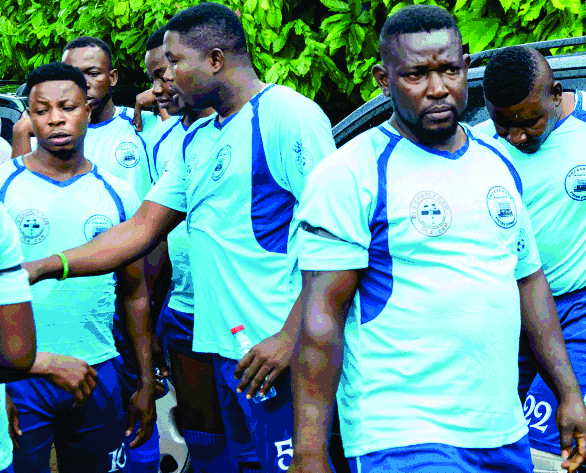

The honorable gathering was further enriched by the participation of key personalities, including: Hon. BIC Okwujiaku, President of the Nigerian Community Douala, HRH Eze Jonathan T. Onyenagubor, Eze Gburugburu 1 of Ohanaeze Ndi Igbo, Cameroon, Sir, Lovinus Ezeh, Vice President, Nigerian Community Douala, Chief Alex Nwoye, Vice President 2, Nigerian Community Douala, Chief Uche Obiekwe, Patron of the Nigerian Community Douala, Chief Innocent Obiorah Odoh, Patron Anambra State Union, Chairmen of Imo and Enugu States Union, Esteemed members of the Anambra State Union.
The event also extended its reach to include esteemed guests from Douala and beyond.
In recognition of the paramount importance of safety and well-being, the organizers ensured the presence of dedicated medical health and security personnel, assuring attendees a secure environment throughout the event.
Despite the inclement weather characterized by heavy rain, the unyielding spirit of the Anambra community remained unshaken. A testament to their passion for football and unity, a remarkable number of attendees braved the elements, converging to witness the unfolding of history on the lush fields of St Michel, Terminus.
The final was held on Sunday 12th of November 2023 @ Bonamousadi Stadium Douala. Oyi Local Government lifted the trophy while Aguta Local Government took the bronze and Idemili Local Government took silver.

The inaugural Anambra State Union Football Tournament stands as an embodiment of shared values, intercommunity collaboration, and the timeless appeal of sport. This event not only etched a significant mark on the sporting calendar but also served as a reminder of the resilience and unity that define the Anambra community.
As the tournament concluded its first chapter, it left in its wake a legacy of camaraderie, sporting excellence, and the promise of more remarkable editions to come.
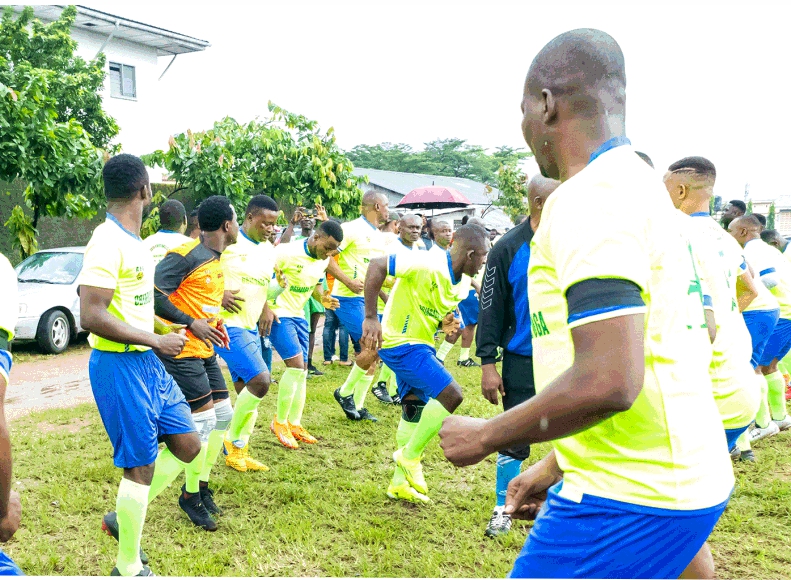



Cameroon, nestled in the heart of Central Africa, is a country with a captivating blend of rich cultural diversity, stunning landscapes and abundant wildlife. Often referred to as « Miniature Africa, » Cameroon offers travelers a unique and multifaceted experience, showcasing the continent’s essence in a single destination.
With more than 250 ethnic groups and languages, Cameroon is a melting pot of diverse cultures, traditions and customs. The capital city, Yaoundé, and the economic hub, Douala, provide excellent starting points to dive into Cameroon’s cultural wealth.
Cameroon’s diverse geography offers a plethora of breathtaking landscapes, each with its unique charm.
In the West, the mist-covered peaks of Mount Cameroon, the highest mountain in West Africa, beckon adventurous hikers to climb and witness awe-inspiring views of the surrounding scenery.
Towards the North, the Sahelian region boasts vast savannas and semi-arid landscapes, offering visitors an opportunity to spot magnificent wildlife, and in the East, the dense rainforests of the Congo Basin teem with a rich variety of flora and fauna, including gorillas, chimpanzees, and exotic bird species.
Tourism Spots on a Budget
Here are a selection of the most distinguished and captivating tourist destinations in Cameroon. These remarkable locales boast accessibility without undue strain on one’s financial resources, making them irresistible choices for tourists.
Mefou National Park:
Mefou National Park houses the Mefou Primate Sanctuary, a rescue center managed by Ape Action Africa. With over 300 rare and endangered primates, it’s a significant conservation project in Africa, providing lifelong care and rehabilitation for animals rescued from illegal trades.
Limbe:
Formerly known as Victoria, Limbe is a port city with a diverse flora and fauna influenced by its colonial past. The Limbe Wildlife Centre/Botanical Centre offers a close-to-nature experience, rescuing and caring for ill-treated and endangered animals.
Mount Cameroon:
Mount Cameroon, also called the « Chariot of the Gods, » is West Africa’s highest mountain and an active volcano. A popular destination for adventurers and hikers, the trek offers stunning views, diverse landscapes and encounters with wildlife like monkeys and birds.
Kribi Beach:
Kribi Beach, in the southwestern region, boasts long white sand beaches and clear waters. It’s perfect for swimming, sunbathing and water sports. Visitors can also enjoy the Chutes de la Lobé waterfall, where they can swim under the falls. Local cuisine and seafood delicacies await at various restaurants.
Korup National Park:
Korup National Park, renowned for its bird species, offers pristine tropical wilderness. Visitors can enjoy lodging infrastructure and spot unique primates like the Nigeria-Cameroon chimpanzee and Perseus’s red colobus. Located near the ocean, Mundemba serves as a starting point for tours to the park, where guides often speak the local Cameroonian language.
Cameroon stands tall as a remarkable destination for audacious travelers seeking a blend of cultural diversity, awe-inspiring landscapes and thrilling adventures. From the depths of the rainforests to the heights of its mountains, and from the bustling cities to the serene beaches, the land beckons with open arms, ready to share its enchanting beauty and warm hospitality with all who venture to explore its wonders. As tourism in Cameroon continues to grow sustainably, the country’s potential as a captivating and memorable destination will undoubtedly flourish.


Tunde Onakoya: Igniting the Spark of Possibility Through Chess »


SPOTLIGHT : Dr. Oluyinka Olutoye A Beacon of Hope in Pediatric Surgery
« Pioneering Pride: Nigeria’s First Female Officer Graduates from Royal Military Academy Sandhurst »
Trending
-

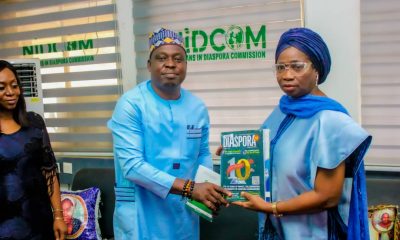

 diplomacy4 semaines ago
diplomacy4 semaines agoNiDCOM, ND-Group Partner To strengthen Nigeria-Cameroon Diaspora Relations
-

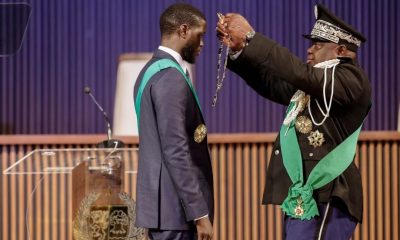

 News4 semaines ago
News4 semaines agoSENEGAL WITNESSES HISTORIC INAUGURATION: FROM PRISONER TO PRESIDENT IN WEEKS
-

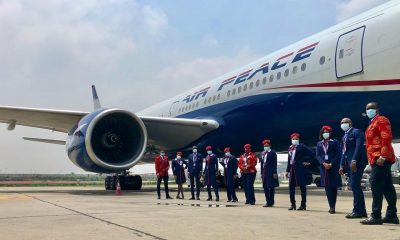

 News3 semaines ago
News3 semaines agoAIR PEACE LAUNCHES LAGOS-LONDON FLIGHT SERVICES: A MILESTONE FOR NIGERIAN AVIATION
-

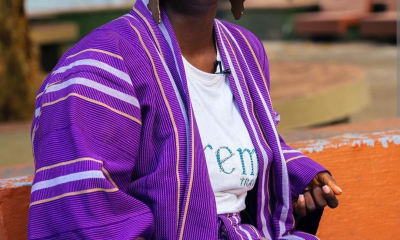

 News2 semaines ago
News2 semaines agoPelumi Nubi: Pioneering Adventure from London to Lagos
-
Features2 semaines ago
« Pioneering Pride: Nigeria’s First Female Officer Graduates from Royal Military Academy Sandhurst »
-

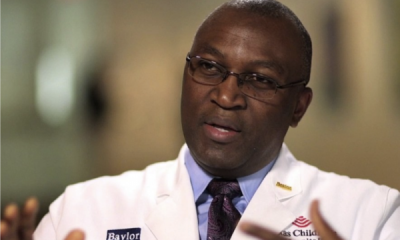

 Features2 semaines ago
Features2 semaines agoSPOTLIGHT : Dr. Oluyinka Olutoye A Beacon of Hope in Pediatric Surgery
-



 Entertainment5 jours ago
Entertainment5 jours agoTunde Onakoya: Igniting the Spark of Possibility Through Chess »


